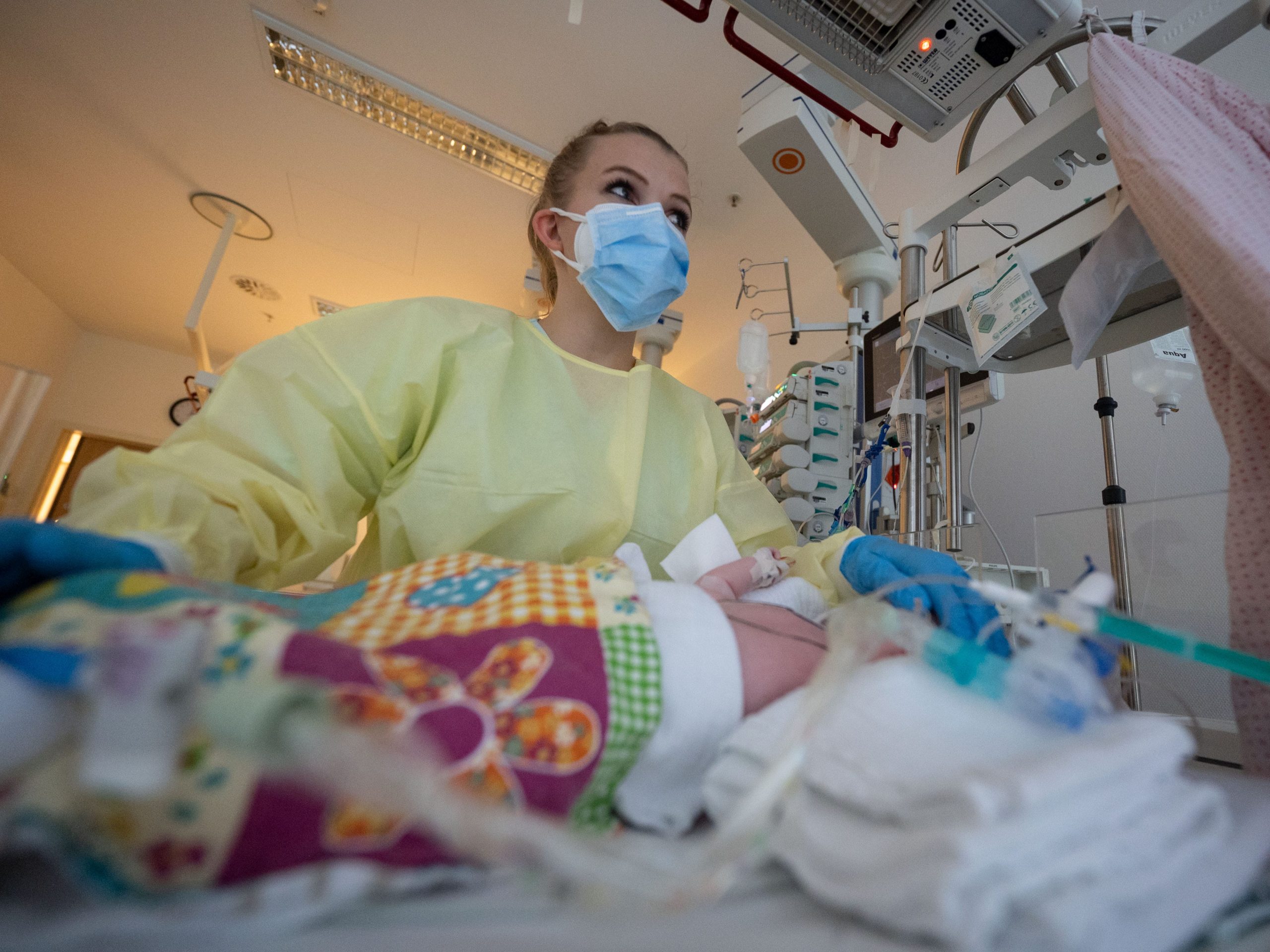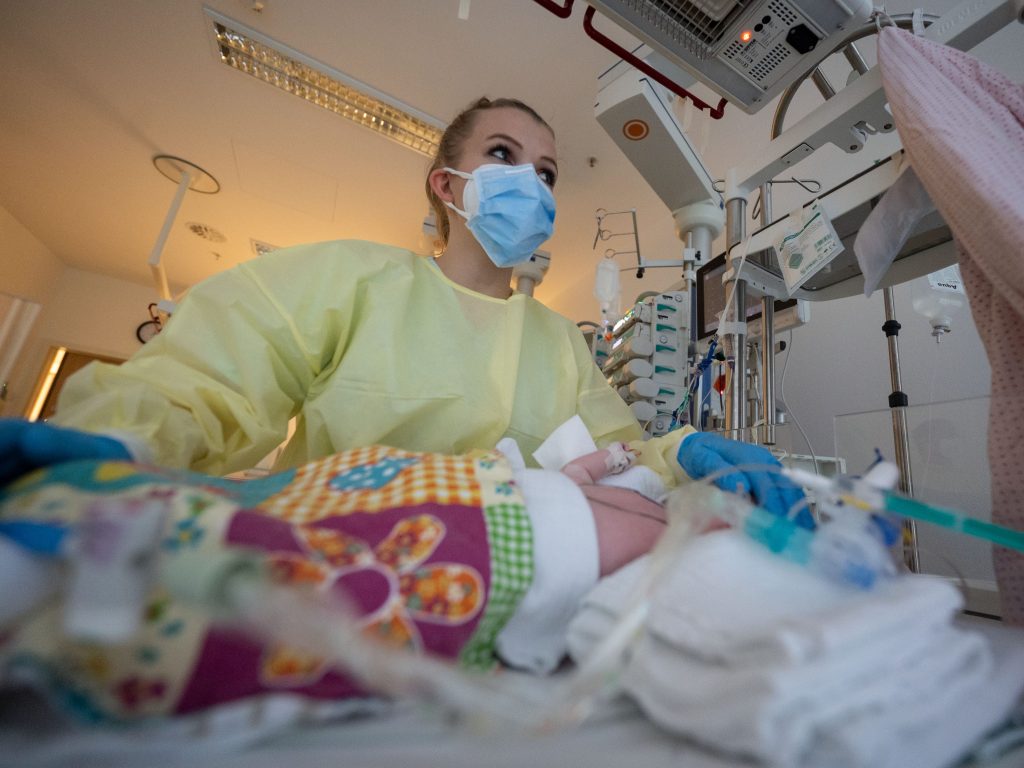
- A new drug called Nirsevimab protected healthy babies against RSV in a late-stage trial.
- RSV is the most common cause of bronchiolitis and pneumonia in US babies under 1, the CDC has said.
- Nirsevimab needs to be approved by regulators before it can be offered to infants.
A new drug could help protect healthy babies from a common respiratory virus that can make them sick, according to the doctors and scientists studying the drug.
A late-stage trial published in the New England Journal of Medicine Thursday found nirsevimab, an antibody injection, cut the number of babies requiring medical attention for a respiratory syncytial virus (RSV) infection by about 75%.
RSV is the leading cause of bronchiolitis, an inflammation of the small airways, and pneumonia in babies under the age of one in the US, according to the CDC.
In most cases, RSV causes mild, cold-like symptoms lasting up to two weeks but one to two of every 100 children younger than six months require hospital treatment, the CDC said.
At present, there's only one drug available — pavivizumab — that might prevent RSV. However, it's reserved for babies at highest risk from the virus, such as those born prematurely or with underlying lung or heart conditions.
Pavivizumab's protection lasts one month, which means infants need five injections throughout the season when RSV is most prevalent, which is during fall, winter and spring in most of the US.
The latest trial's results, pending regulatory approval, suggest that nirsevimab might be used to protect healthy, term babies from RSV as a one-off shot for a season, the study authors said.
The scientists found RSV-associated infection requiring medical attention occurred in 1.2% of 994 infants that got nirsevimab, compared with 5% of 496 babies that got a dummy drug. This corresponds to an efficacy of 74.5%, the study authors said.
There were no serious adverse events related to the drug, they said.
Dr. William Muller, study author and an associate professor of Pediatrics at Northwestern University Feinberg School of Medicine said of the findings: "These exciting data show that nirsevimab has the potential to offer RSV protection for all infants, which would be a paradigm shift in the approach to this disease."
Muller told Chicago news outlet WGN9, that RSV can be a "big problem" for "little babies, particularly under age 1".
"It can cause them to get an pneumonia, have difficulty breathing, have difficulty maintaining appropriate oxygen levels," he said, per WGN9."We don't really have any great treatments for it. We provide oxygen. We provide IV fluids and suctioning. They really have to recover on their own," he said.
"We completely relate to the frustration parents feel when they see their child struggling to breathe and we don't have any medicines to give them," Muller added, per WGN9.
Mueller told WGN9 that the new drug nirsevimab was administered as an injection into the muscle, in a "very similar" way to a vaccine.
Nirsevimab works differently to a vaccine, though — it doesn't trigger the bodies own immune system to produce disease-fighting antibodies. Instead, it's an antibody itself, which can bind to and stop cells from getting infected.
Julian Tang, a professor of respiratory sciences at the University of Leicester, who was not involved in the study, cautioned that antibody drugs such as nirsevimab could be expensive.
Tang added: "But in principle it will be useful to reduce RSV bronchiolitis illness and hospitalisations each season for these young children, which is a major healthcare burden," he told The Times.
The trial was funded by drugmakers AstraZeneca and Sanofi.

